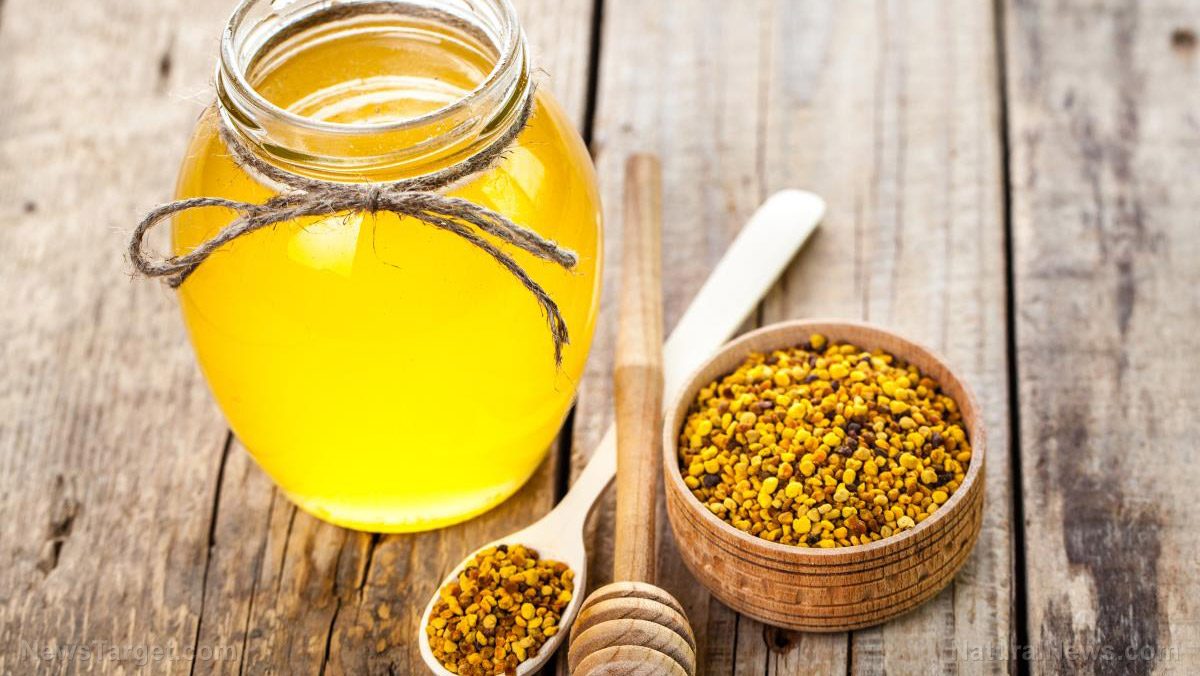Irrefutable evidence proves that honey and bee pollen improve menopausal symptoms in breast cancer patients
08/02/2018 / By Isabelle Z.

As the most common cancer among women around the world, breast cancer is one of the biggest health issues of our time. It’s also quite controversial, as you might expect, from a problem that has the potential to generate so many profits. In addition to living with a constant worry of developing this potentially deadly disease, women have to deal with overdiagnosis, dishonest surgeons who prey on their fear, and questionable charities that don’t put their funds toward finding a cure as claimed. A diagnosis can be extremely traumatic as women face questions about their mortality, and for those who are undergoing treatment, there’s a whole slew of side effects that can make their make life pretty miserable.
Some breast cancer patients undergo chemical hormone suppression as part of their treatment. Drugs like Tamoxifen and Arimidex often add to the trauma of breast cancer by causing hair loss, libido crashes, hot flashes, and fatigue, to name just a few side effects. It gets so bad that some women quit their treatment, while others are given psychotropic drugs like Prozac or Lyrica that pile on even more side effects.
It might seem like it’s just an endless series of bad news when it comes to breast cancer, but a new study has found that there could be some help in the form of honey and bee pollen. Researchers set out to see if bee pollen could reduce menopause-like symptoms in those taking hormone-suppressive drugs for breast cancer. They got the idea after a trial showed that bee pollen extracts enhanced menopausal women’s quality of life and reduced their hot flashes.
The power of the elements: Discover Colloidal Silver Mouthwash with quality, natural ingredients like Sangre de Drago sap, black walnut hulls, menthol crystals and more. Zero artificial sweeteners, colors or alcohol. Learn more at the Health Ranger Store and help support this news site.
Researchers surprised by honey finding
Not only did they find that the bee pollen was indeed effective, but they discovered something else completely unexpected at the same time. In the study, they used honey as the placebo, but to their surprise, they discovered that it was every bit as effective as the bee pollen when it came to reducing symptoms!
In the randomized crossover trial, the researchers assessed the menopausal complaints of 46 breast cancer patients who were receiving anti-hormonal treatment. An incredible 70.9 percent noted improvements when taking bee pollen, while an equally remarkable 68.3 percent noted improvements in her symptoms when taking honey. In fact, the difference between the two groups was so small that it was not considered significant, making them essentially equally good choices.
These results were confirmed in a follow-up. The researchers mention that honey actually raises estrogen levels, which goes against the idea behind suppressing hormones in the first place – even if it did lead to improvements in symptoms in the study. Nevertheless, they believe that women who are looking to discontinue treatment because they aren’t finding symptom relief from alternatives like acupuncture could be offered bee pollen. They also called for future tests to look into the use of honey and bee pollen in relieving menopausal symptoms in healthy women.
Of course, it’s important to keep in mind that finding relief from the symptoms caused by hormone-suppressive drugs does not actually protect the body from their dangers. Sometimes a bad reaction is your body’s way of telling you that whatever you’re taking should be avoided. For example, extended tamoxifen use has been linked to endometrial and liver cancer.
Nevertheless, many women feel compelled to continue the treatment their doctors have prescribed, and anything that can make this a more pleasant experience naturally and without side effects is worth consideration.
Sources for this article include:
Tagged Under: alternative medicine, Bee Pollen, breast cancer, honey, hormone suppressors, menopausal symptoms, natural cures, natural remedies, research, tamoxifen, women's health




















